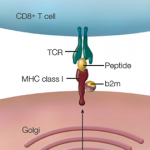Although their analysis identified underlying relevant pathways, they acknowledge that functional studies are still required to provide biological insight. The authors conclude that the results have implications for future therapeutic trials involving anti-inflammatory agents.
Additionally, they note, “Our data suggest more extensive clinical studies of patients with immune-mediated disorders for [Parkinson’s disease] signs to develop possible screening schemes for [Parkinson’s disease], and vice versa, for monitoring immune and inflammatory status among individuals with an increased risk for [Parkinson’s disease].”
ad goes here:advert-1
ADVERTISEMENT
SCROLL TO CONTINUE
Lara C. Pullen, PhD, is a medical writer based in the Chicago area.
Reference
ad goes here:advert-2
ADVERTISEMENT
SCROLL TO CONTINUE
- Witoelar A, Jansen IE, Wang Y, et al. Genome-wide pleiotropy between Parkinson’s disease and autoimmune diseases. JAMA Neurol. 2017 Jun 5. doi: 10.1001/jamaneurol.2017.0469. [Epub ahead of print]

